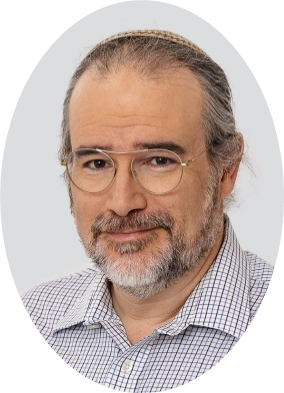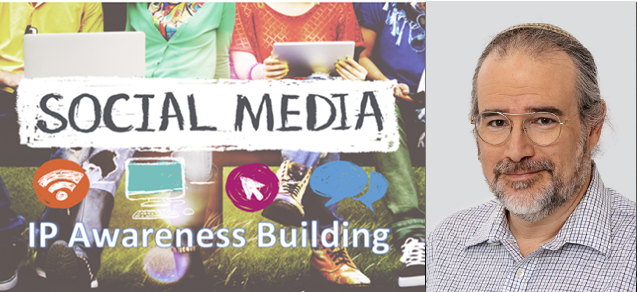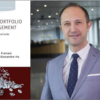Online Marketing for IP Experts – Interview with Maier Fenster
To create awareness about the online marketing best practice for IP experts we are regularly interviewing IP experts, who are successfully using LinkedIn and other digital channels to position themselves and gain new clients via those channels. Additionally, we are showing their best practice in the online marketing Newsletter of the 🎯 IP Management Pulse and its Online Marketing Guides. Here you can find the last issues in the archive and also subscribe to never miss any of our online marketing resources. Summary of the key answers by Maier Fenster:
- Professional communication with clients and patent offices has become mainly digital
- Expert positioning can have many goals
- Monitoring your customer journey is crucial to assess its quality
Background Question 1:
We are currently seeing a continuously accelerating digital transformation in the IP system. Especially in dealing with the stakeholders of the IP system as well as in the relationship and communication between attorneys and clients. As well as networking and professional exchange between IP experts, for example via social networks such as LinkedIn.
IP business academy: How do you perceive these changes?
Maier Fenster: There seem to be several things going on. Networking and professional exchange is exploding on the internet. Communications with clients is definitely 90%+ digital, including emails, various IM & Video conferencing. Also communication with patent offices is mostly (again 90%+) digital. I still remember filing paper patent applications and the race to get the filing document stamped as received before midnight. This digital revolution is very convenient, allows remote work and also allows very fast turnaround, as well as contact with remote clients. I do note that telephone & fax clients were always a “thing”, but today we have many more clients that we never or seldom meet in person.
However, one problem with social networks is that IP considerations are typically secret and you cannot, sometimes for many years, talk about what was actually done and why it was valuable. I feel this hampers useful exchange of ideas.
Background Question 2:
Expert marketing refers to the targeted presentation and positioning of experts and their expertise. This includes a strong personal brand presence of the expert in the online area, in particular the creation and distribution of high-quality and useful content, and targeted lead generation. This also includes online reputation management, i.e. monitoring and positively influencing your own expert brand.
How important is your expert positioning for you and your business?
This is interesting. For me personally, expert positioning is more important professionally rather than for lead generation (but see below). I find that content creation has five goals in addition to lead creation and market education: attracting like-minded people to learn from; attracting potential workers/trainees; feedback from the public; building a content repository to use when needed; and educating the public. I think the new digital channels are great for education, both asynchronous and synchronous. The amount of useful publicly available material on IP is astounding, and available at many levels of expertise and abstraction, with examples. I love the case studies at CEIPI, for example (https://ipbusinessacademy.org/university-industry-case-studies).
So we are doing expert positioning on several levels: articles in business media, newsletters, podcasts, social media posts and activities such as lectures, teaching in academia & interactive workshops. We also target some very different audiences: students, professionals (engineers, doctors), young founders or even pre-founders, TTOs, startup companies, industrial companies and others too.
Background Question 3:
50% of all decision-makers in business today are millennials and therefore digital natives. These are people who are used to obtaining information digitally and shopping digitally. The search behaviour for specialist information has changed fundamentally in recent years. 40% of the 3.5 billion searches per day on Google are shifting to social networks and so more and more content is presented there. More and more customer journeys in the legal sector are taking place completely online.
How important do you consider online marketing to be and how important is a consistent customer journey for potential clients from social media to the website to email?
Online marketing is crucial for us. We leverage a multi-channel strategy that includes social media, content articles, podcasts, and numerous interviews to build awareness. Our lead generation process is well-defined, allowing us to track the customer journey from media interactions to website visits and direct inquiries. We do not rely on a single content or promotion channel; instead, we invest significantly in digital marketing.
This comprehensive approach is gradually yielding results, as evidenced by increasing engagement and leads sourced from our digital efforts.
Having said that, I find that work still comes mostly from word of mouth, though this can be because of our particular market situation – the startup scene in Israel is still small enough and very personal and intense. There is definitely a lot of word of mouth happening on social networks, but I do not have direct access to it. So I do not have all the details about customers doing a journey from (my) social media to website to email. Many such leads can appear as direct from social media to email or telephone (presumably with some checking or word-of-mouthing happening in the background) and some “checking up” on the website. I have also seen some interesting journeys from social media to physical-presence activity to customer.
Background Question 4:
The search behaviour for experts and the initiation of personal contacts has also changed due to social distancing during the Corona pandemic and the current “new normal work“. The Google searchability of experts and their reputation is increasingly determined by their online presence. Spending on online marketing increased by 31 % last year. Designed for professional relationships, LinkedIn is growing by 15% annually with over 830 million members and is by far the most important network for legal advisors and IP experts.
Do you also observe these growth rates in client requests from your Online Marketing?
Yes, we have observed growth in client requests stemming from our online marketing efforts.
Our strategy integrates both digital and physical marketing, ensuring multiple touchpoints with prospective clients.
This blended approach includes substantial digital investment and targeted campaigns, resulting in a noticeable increase in engagement and inquiries.
Our commitment to a robust digital presence, particularly on platforms like LinkedIn, has been essential in maintaining our reputation and reach in the IP sector.
There is however a difference between requests for the company and requests to particular people (like myself). Direct requests often come as “word of mouth” or personal recommendation, but may have a significant amount of digital marketing effects behind them. I note that since we do a lot of non-digital marketing as well, prospective clients get multiple touches, both digital and physical and both direct and indirect.
About the interviewee:
 Maier Fenster is the head of the medical device department at Ehrlich & Fenster, of the Ehrlich Group. He specializes in startup companies and multi-disciplinary inventions. His current IP passions are combined IP/business strategy and improving the state of IP understanding by business people. IP can be a great equalizer for the little guy and it is a pity it is not used more; he hopes to change this. Every other week he publishes on LinkedIn (and YouTube) a talk on an IP subject, as part of #IPTechTuesday. He is happy to talk about IP to any audience.
Maier Fenster is the head of the medical device department at Ehrlich & Fenster, of the Ehrlich Group. He specializes in startup companies and multi-disciplinary inventions. His current IP passions are combined IP/business strategy and improving the state of IP understanding by business people. IP can be a great equalizer for the little guy and it is a pity it is not used more; he hopes to change this. Every other week he publishes on LinkedIn (and YouTube) a talk on an IP subject, as part of #IPTechTuesday. He is happy to talk about IP to any audience.
Formally, he is an Israeli patent attorney and a US patent agent with nearly 30 years experience in the field and holds degrees in Physics, Mathematics and Computer Science. As the Israeli market is relatively small, he has an international outlook when drafting and prosecuting. His credo is that the job of a patent attorney is to help the client understand what their invention might be, and, more important, figure out what IP can do to help their company succeed. He is also an inventor on 40+ patents.



